Cloud Kitchens: Rehan Mehta, East 7th Pizza & Deli
These Mumbai-based food entrepreneurs, who left their promising careers in fine dining to start their own enterprises, in interviews with Verve, talk about the process of — and challenges in — breaking free of the unsavoury practices that the restaurant industry is notorious for, while bringing the sensibilities of gourmet cooking into the delivery-only model
Rehan Mehta, 31
East 7th Pizza & Deli
Location: Colaba
Speciality: Pizzas, sandwiches, burgers, puddings
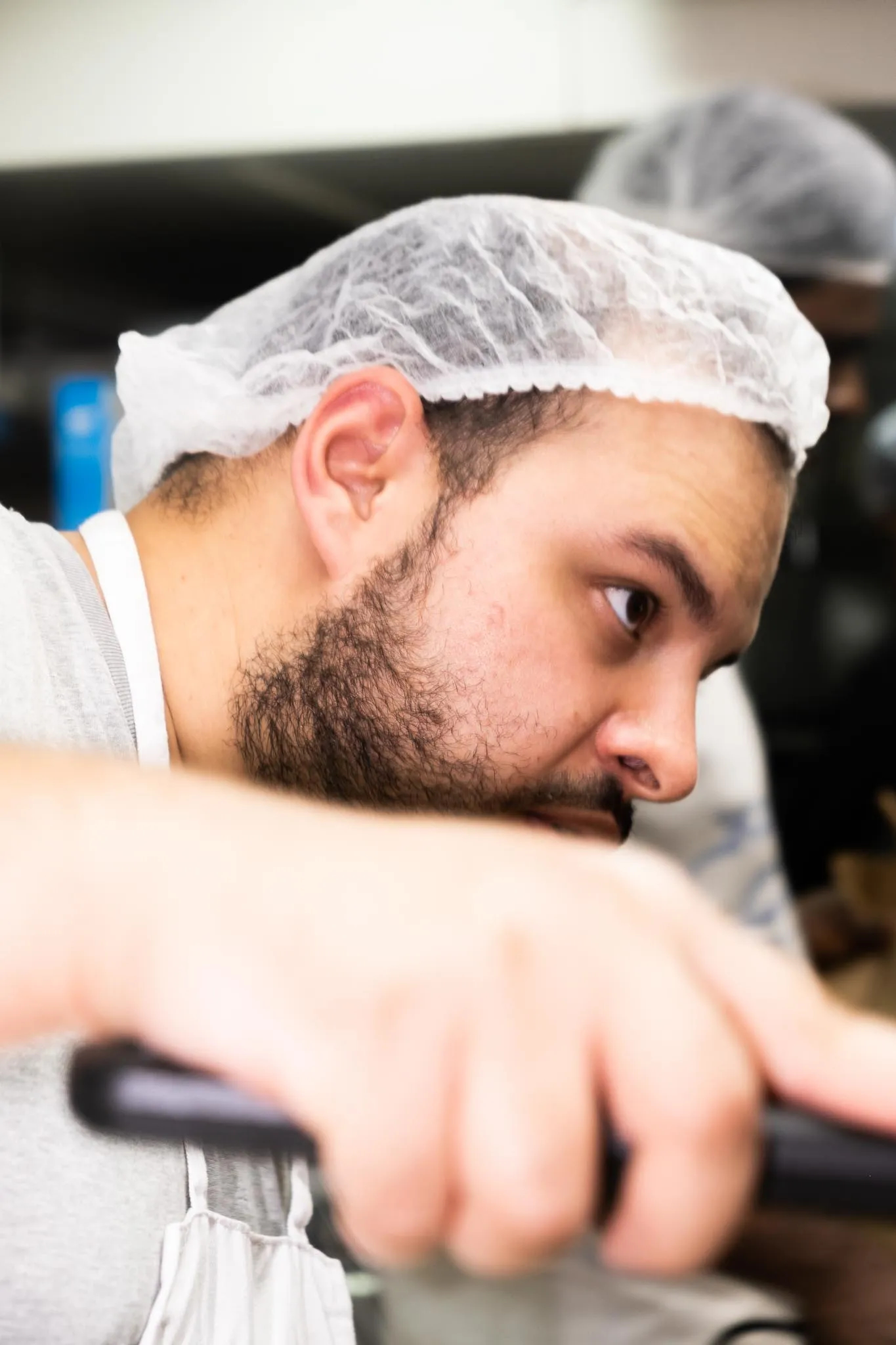
Rehan, tell me about your journey as a chef.
The first time I went to cooking school was after I finished my schooling in Mumbai. I had taken a gap year in 2010 and I did a three-month course at Le Cordon Bleu London. That experience actually made me not want to become a chef so I went to a liberal arts college in the US, where I graduated in psychology.
In my third year at college, I happened to watch a video of Anthony Bourdain (the late celebrity chef and travel documentarian) and David Chang (restaurateur and television personality) eating at one of Chang’s New York restaurants. That made me want to go back to cooking. In fact, I felt like I just could not do anything else! I enrolled in the cooking school David Chang had been to, which was the French Culinary Institute in New York. I had discovered a course that would allow me to take six months off from college, come back and still graduate on time. I loved it there.
The way it worked in America at the time was that I had three months to find a job after graduation. So I applied to a bunch of places. Finally, via Craigslist, I got a job as a pastry cook at Momofuku Milk Bar in New York (now called Milk Bar), even though it wasn’t what I had specifically trained in. I was making cookies, cakes and bread and I still think it’s the best job I’ve ever had. Unfortunately, I had to leave after a year because they were unable to sponsor my work visa.
When I returned to Mumbai in 2015, I was given a job in the pastry department wherever I applied because of my experience at Momofuku Milk Bar. My first job was in Colaba at the modern-American restaurant Ellipsis (now shut), headed by Chef Kelvin Cheung. Chef Kelvin was a Milk Bar fan so he was keen to have me onboard. Unfortunately, he left the restaurant six months after I joined.
Then, in September 2016, I joined Masque in Mahalaxmi in Mumbai. Chef Prateek Sadhu and co-owner Aditi Dugar got in touch with me while the restaurant was still under construction. Even on my first visit, I could tell the kitchen and the space were going to be special. The first year of Masque was really interesting but we were struggling to figure out our style or what could make it unique. Eventually, Chef Prateek started digging deeper into his own Kashmiri roots, and that’s when it really took off. It made more sense because it was personal and culturally relevant rather than just trying to be like many other Scandinavian-inspired tasting menu restaurants. What I enjoyed most from my time there was the fact that the chefs would serve all the dishes and got to interact with the customers, who were usually passionate about food, and that made it fun. We also had a lot of freedom to work on new dishes which kept things interesting.
Later, I grew disillusioned with fine dining. I was keen on starting something that could feed a lot more people. I thought about opening a sandwich shop. I did a few pop-ups and started looking for locations but nothing worked out. At the same time, I heard about the legendary chef Rahul Akerkar opening a new restaurant (Qualia) and I applied for a position in the hot kitchen. I was responsible for the pasta section, which was amazing because I like working with dough and the pasta became really popular.
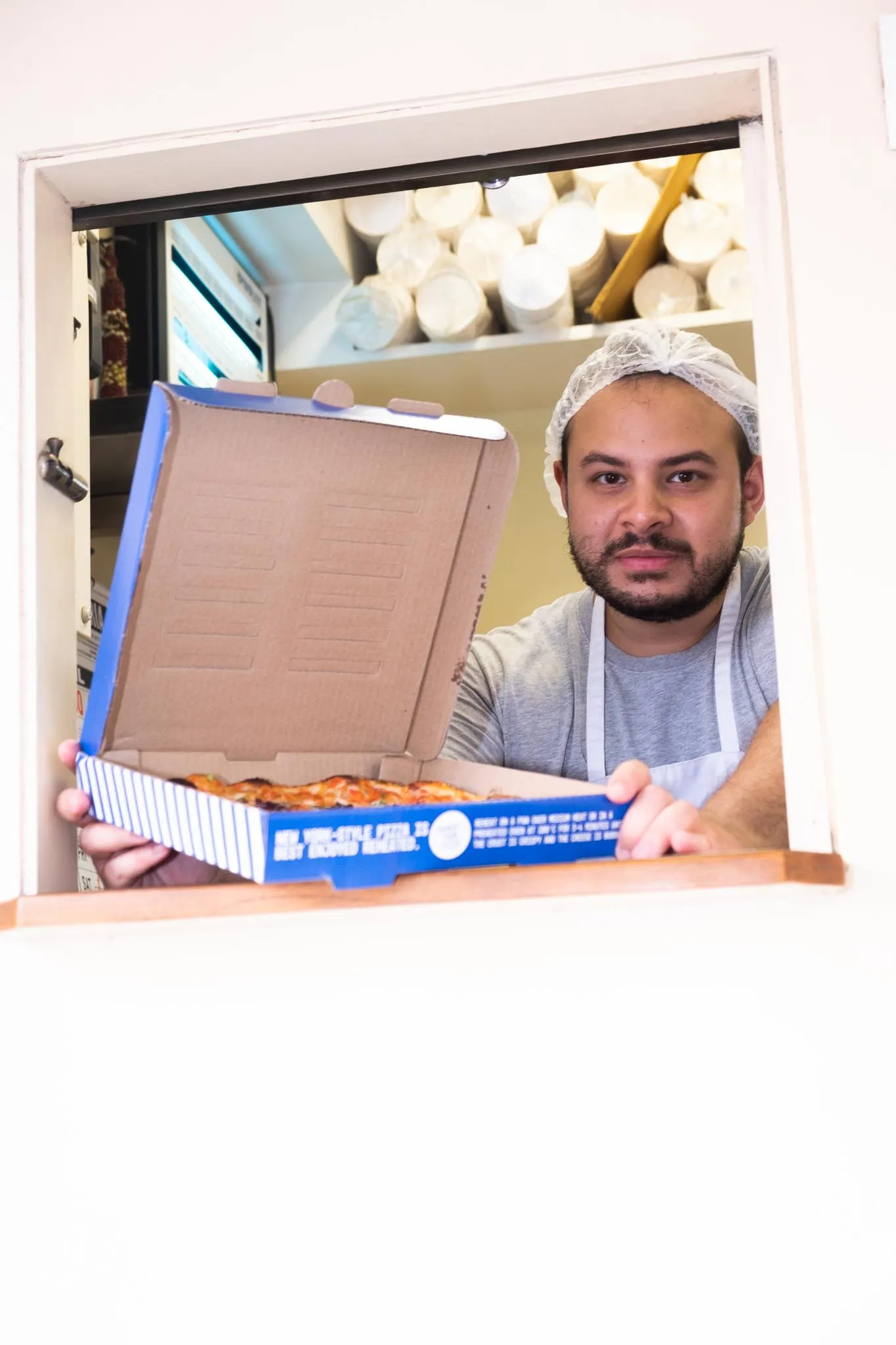
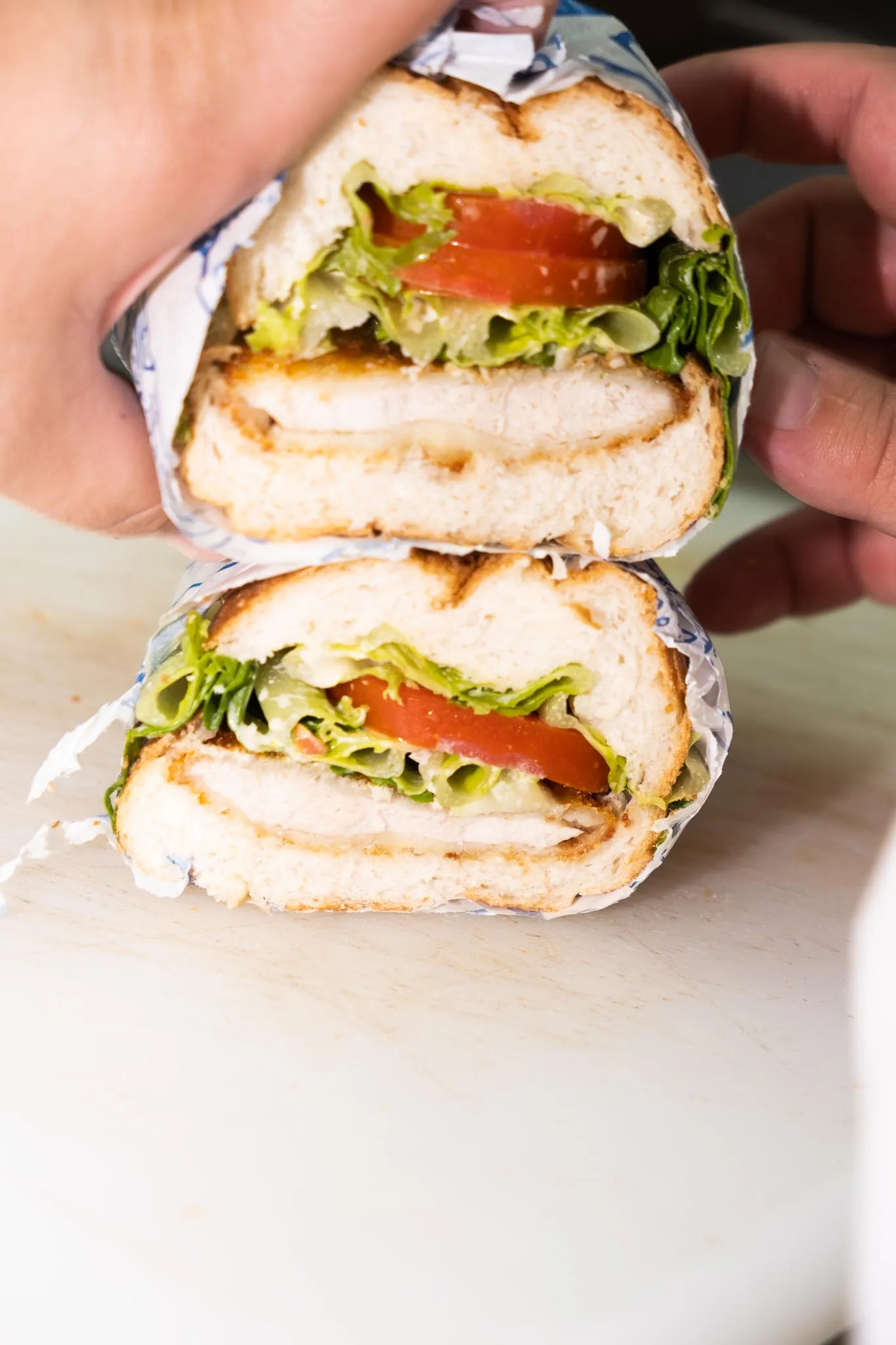
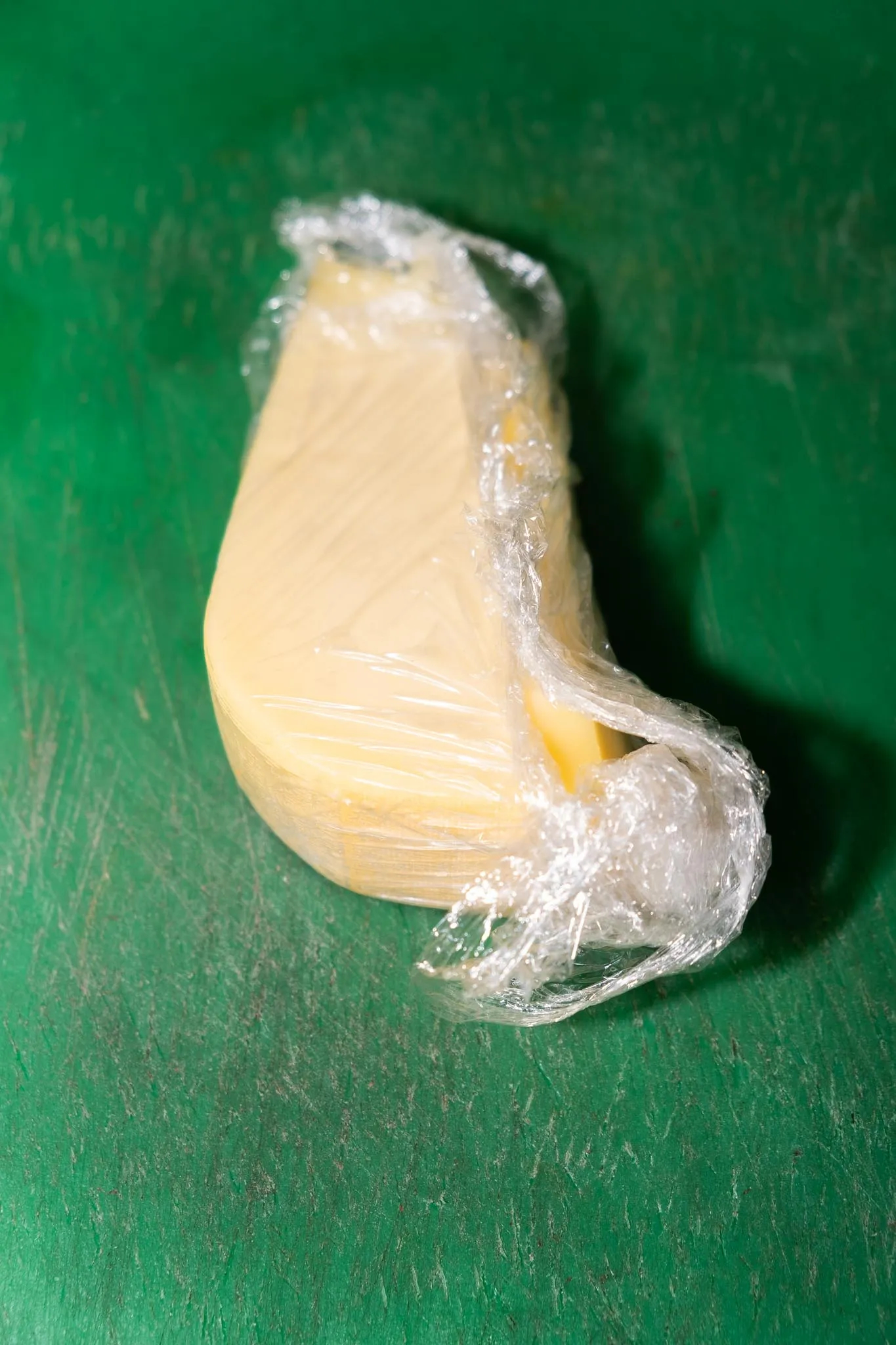
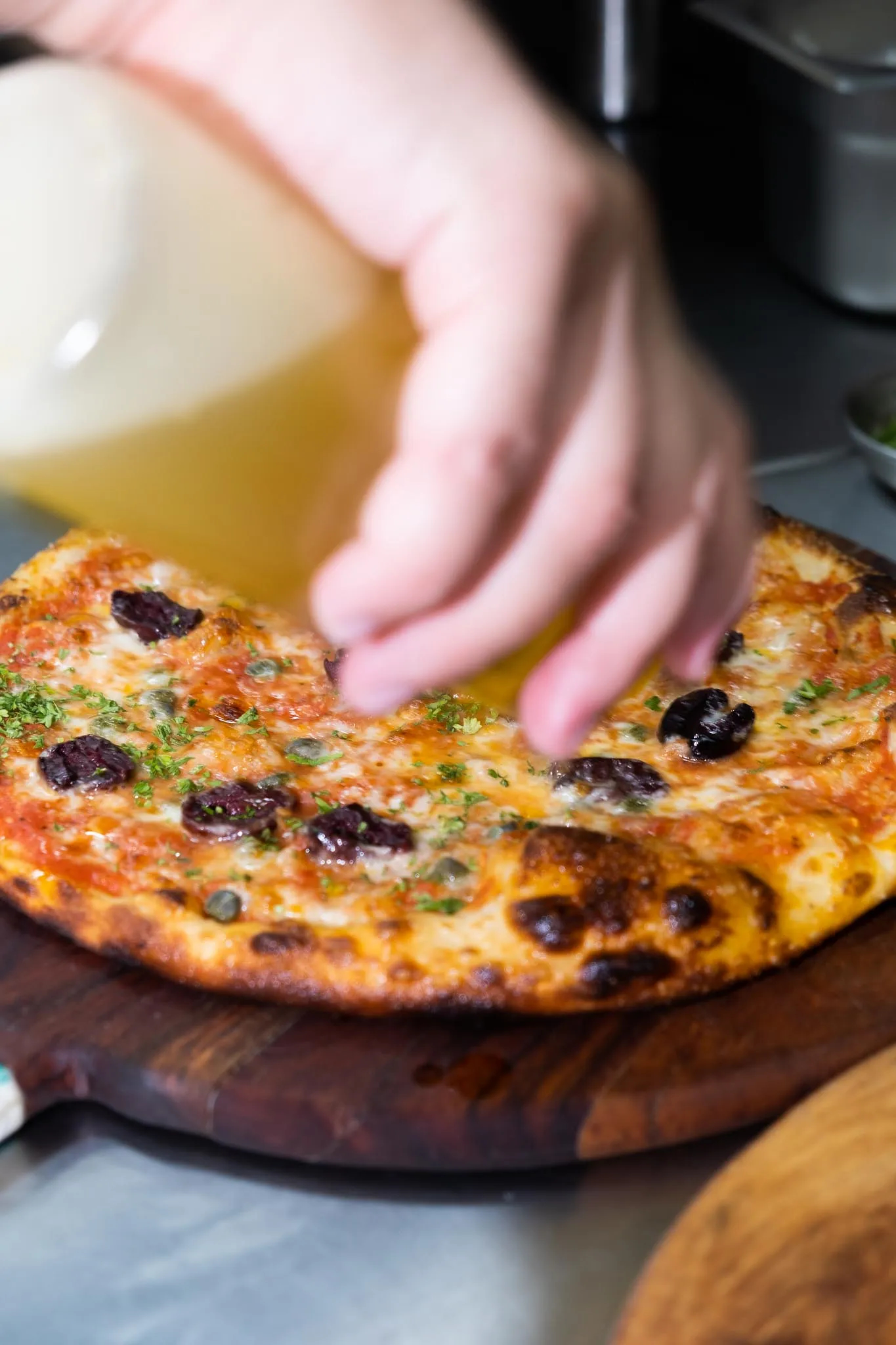
What led you to start a cloud kitchen and how did you intend to stand out?
Soon after I left Qualia, the pandemic struck, which rekindled the idea of a sandwich shop since people were hungry for well-executed comfort food. There wasn’t really a Western-inspired sandwich culture in Mumbai at the time but because people got into baking bread during the lockdown, a sandwich culture was bound to follow.
My original sandwich shop idea evolved to include pizza. My thinking was that pizza and sandwiches go hand in hand. I had eaten a lot of great pizza during my time in New York, which got me obsessed — and during the pandemic I started fooling around with it, making it at home for my family. It was a no-brainer to start as a cloud kitchen at the time because if there had been another lockdown, you would be stuck paying rent for a restaurant without anyone coming in there. I found a place in Colaba in December 2021.
How did you go about setting up your operations? What did you bring in from past experience?
It took me three months to set up the place. I was very finicky about the kitchen being a certain way. I had to find the right oven. I knew I didn’t want a wood-fired oven, I wanted an electric one. In New York, most of my favourite pizza places used electric ovens. Wood fire is very charming, but I don’t think it adds much in terms of taste. I feel like if you have the right electric oven, the pizza can taste just as good and it’s a lot more consistent, which is important. When you’re trying to churn the pizzas out really fast and have 10 to 15 orders at a time, that wood-fired oven is going to be a pain and maybe a few are not going to be as good as the rest because it’s so hard to maintain and control the heat, unlike electric ovens.
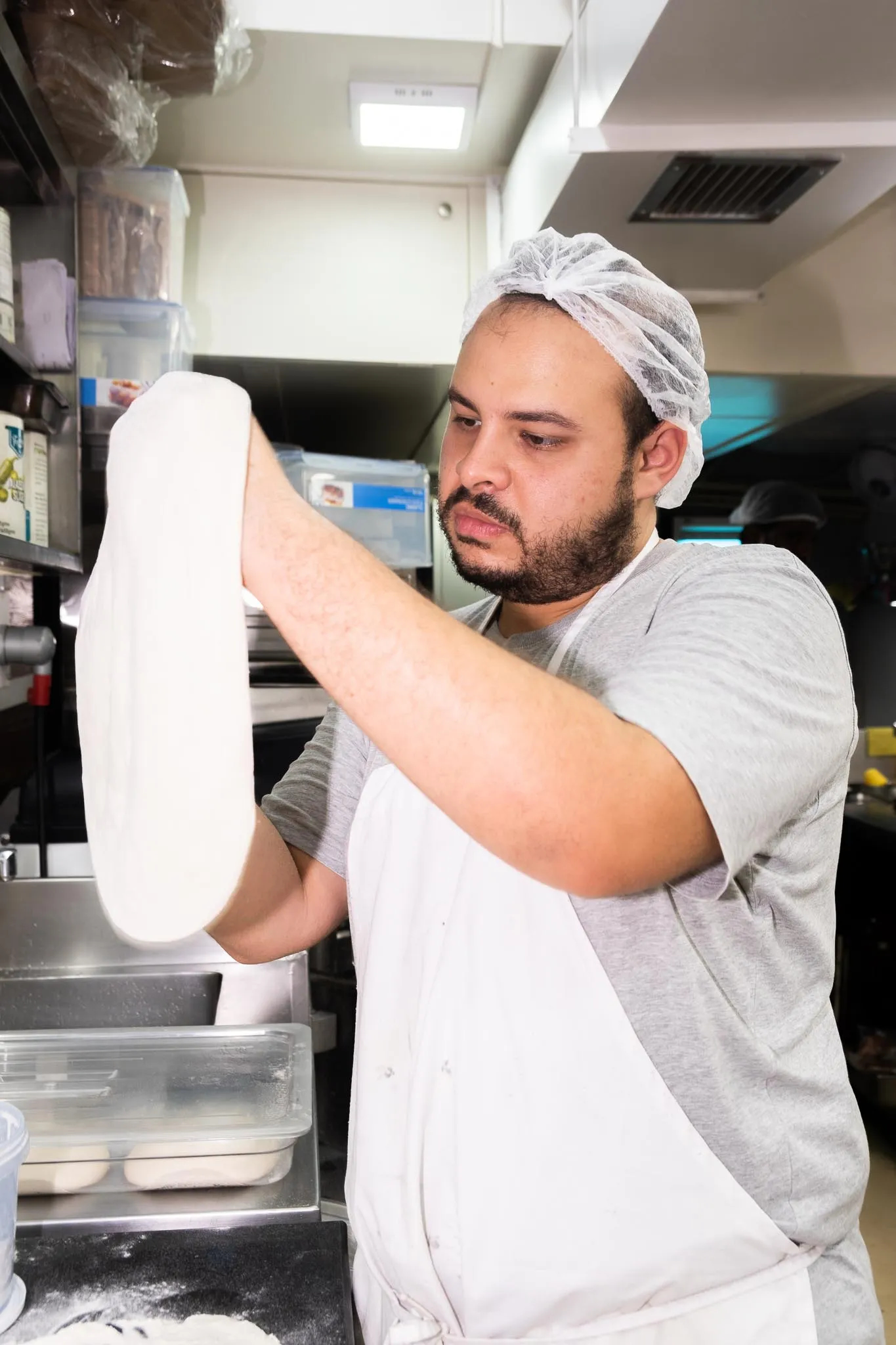
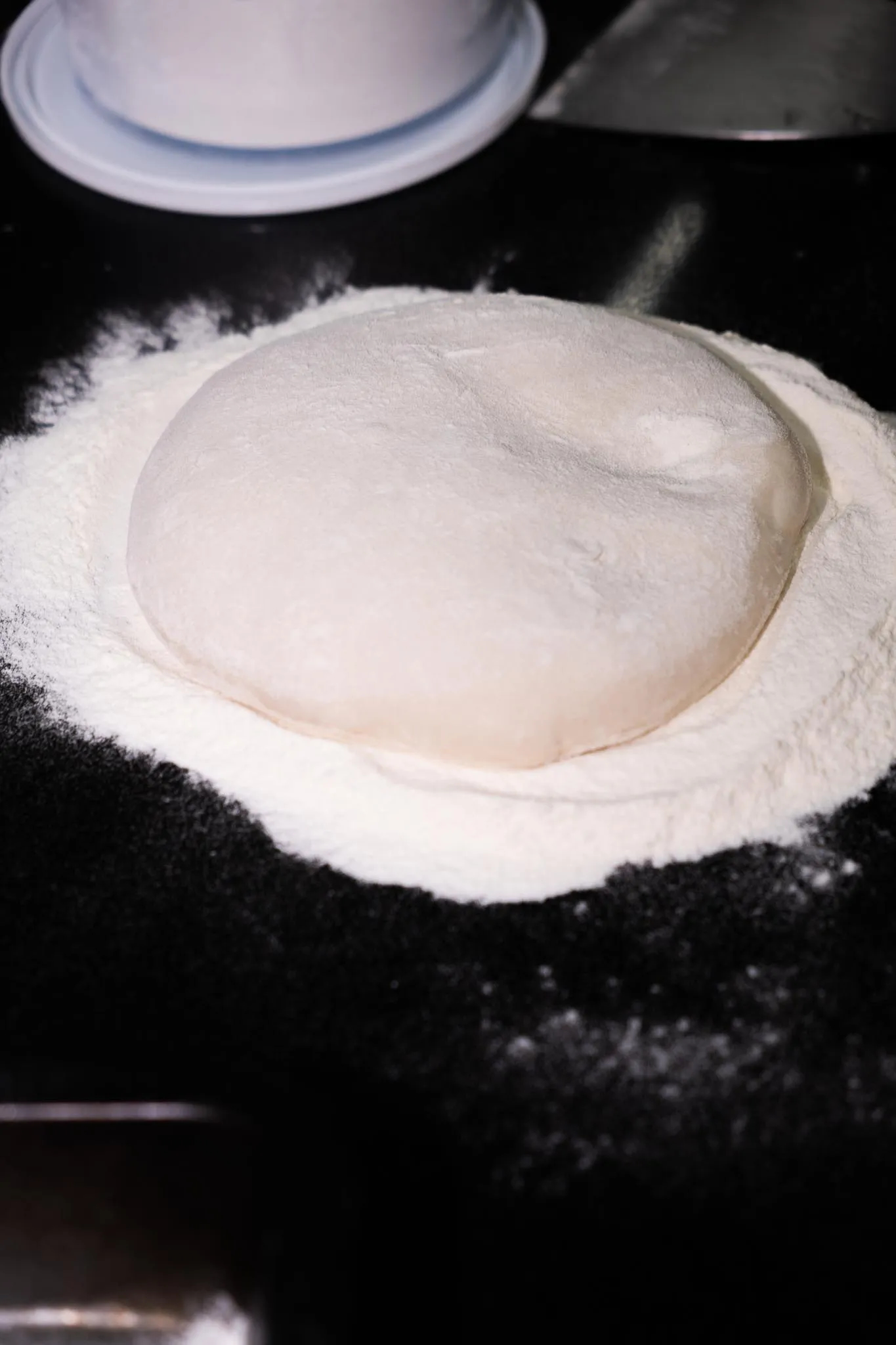
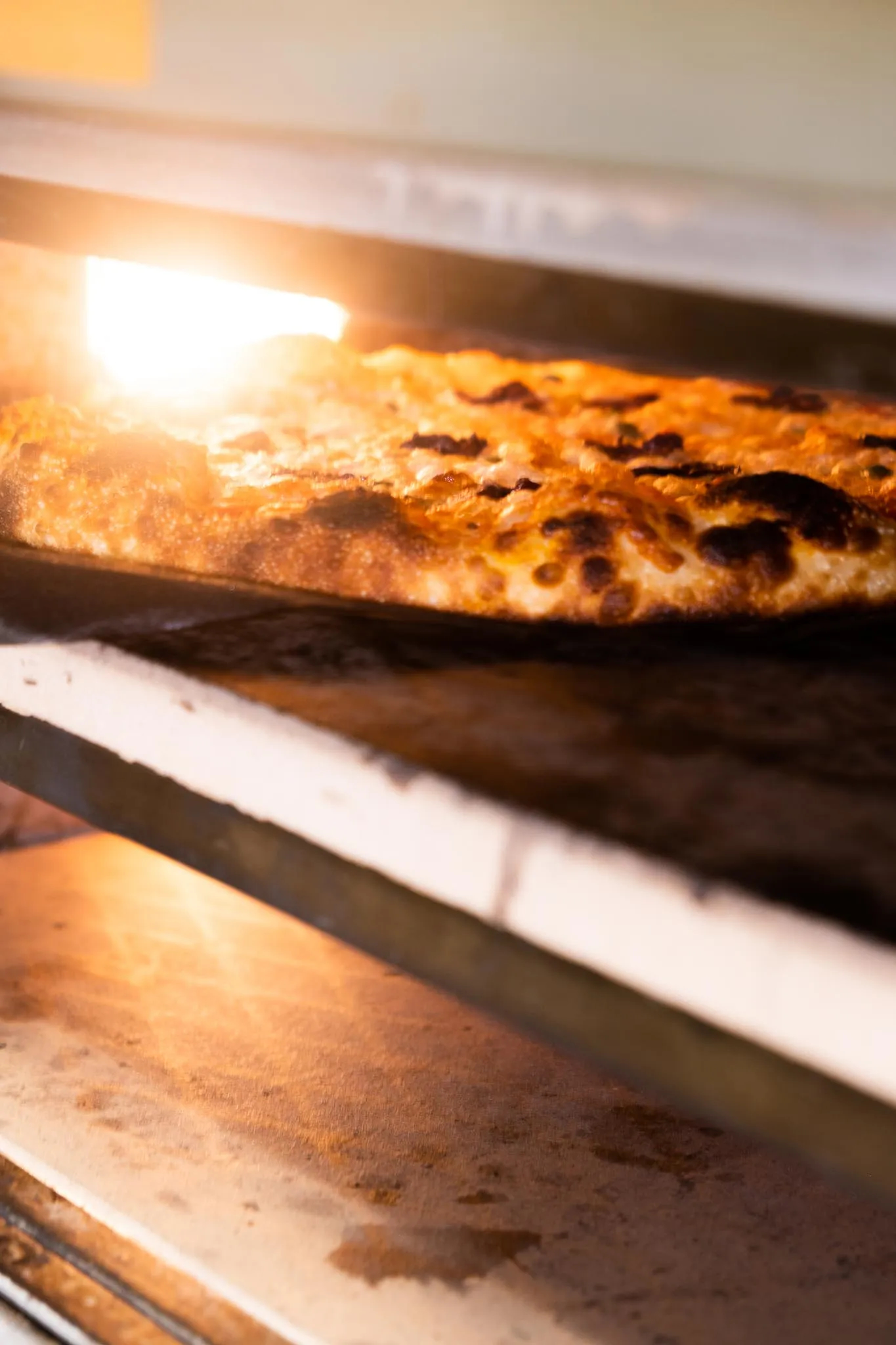
Having mulled over the idea of the sandwich and pizza shop for so long, what has the menu development process been like?
When I started working on the recipes, I thought it would take maybe a few weeks or a month, but it took me five months just to figure out a pizza dough that I was happy with. I did almost a hundred trials. I was just making pizza every day and trying to figure it out. I never imagined how complicated it could be, given that it is just four ingredients that you’re working with. But, the way you mix those ingredients, the proportions, how much water you add, which flour you use, how long you ferment it — all these needed to be figured out. Finally, I settled on a dough after trial number 96. I wanted to simplify the dough process because it’s important for my team to be able to execute it as well as I would. That is why I ruled out a sourdough pizza dough because it has too much margin for error. Now, we’re on pizza dough trial number 103. The pizza dough recipe is still called a trial, even though we’ve been open for a year. And we keep making adjustments in line with changes in the weather to get that perfect light and airy yet crispy pizza crust.
Next came the sandwich bread. We were outsourcing the bread initially but the numbers didn’t work out. It was easier to settle on a recipe, but it still took several trials. We use a Vietnamese Bánh mì-style baguette. Compared to a French baguette, it has a very thin crust and a fluffy interior. The sandwiches got a lot better after we started making our own bread.
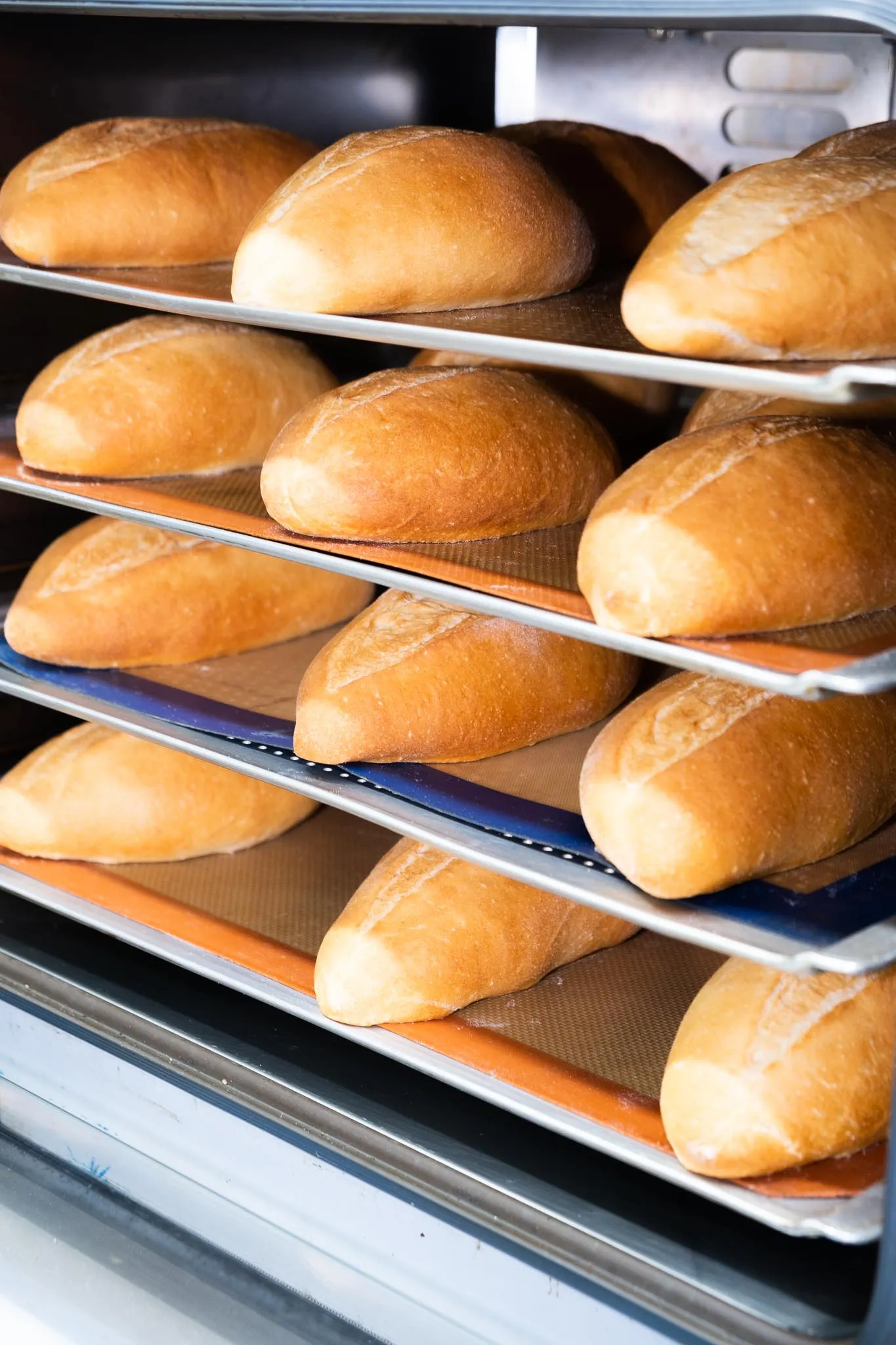
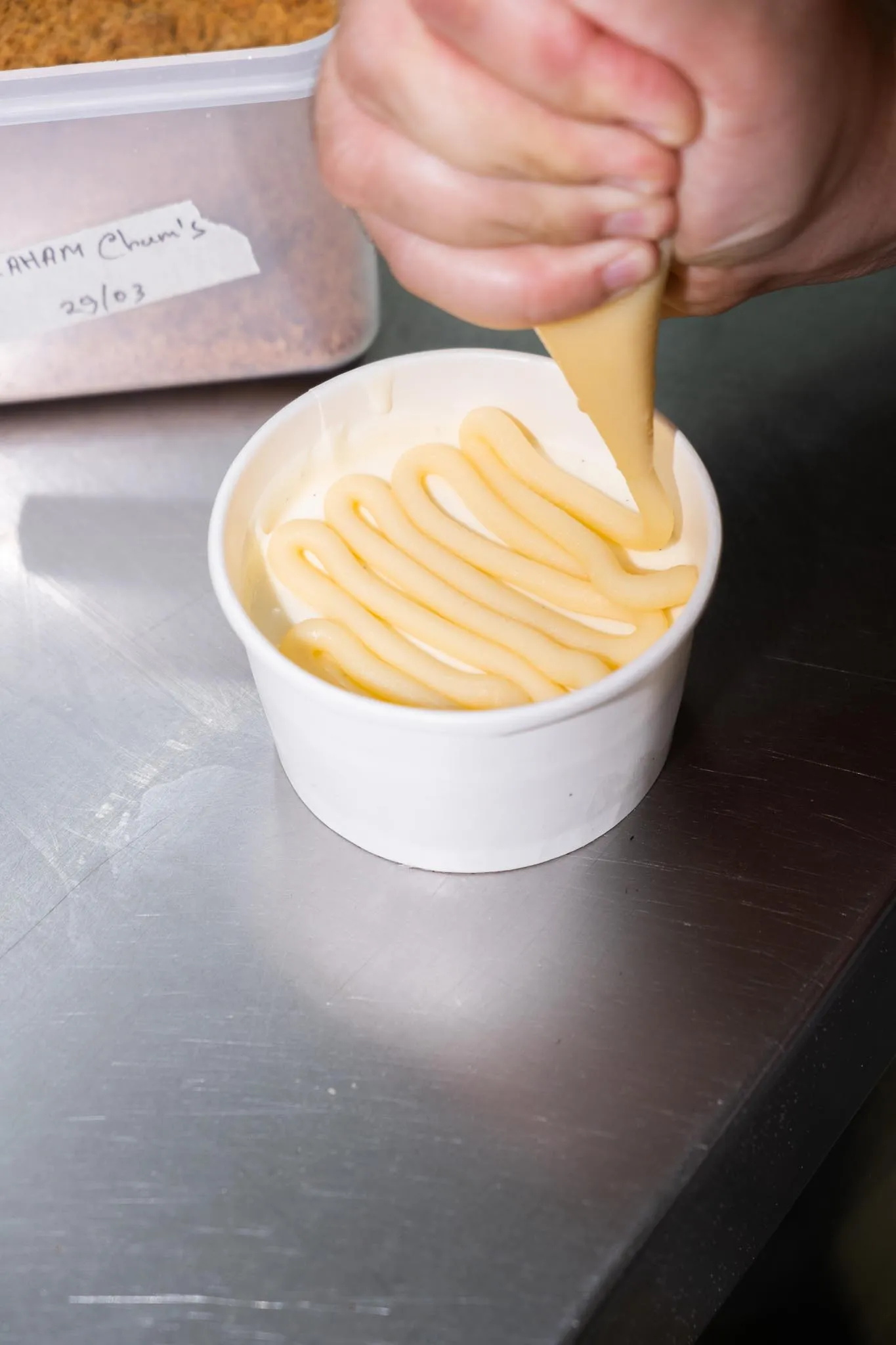
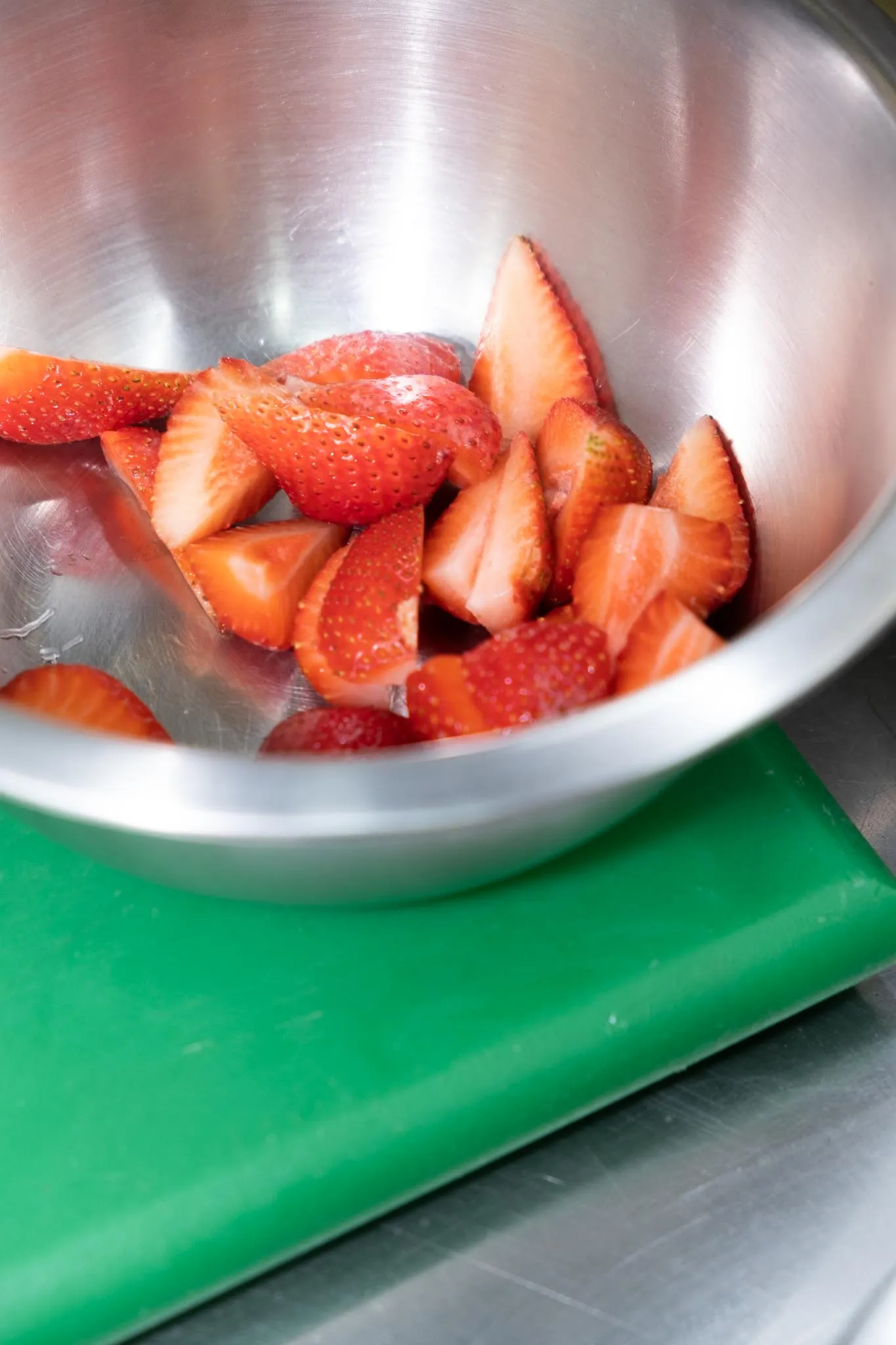
The one thing I knew I had to figure out was dessert. Most pizza places serve dough balls with Nutella and stuff like that. But I wanted something lighter. I thought an American-style pudding would fit the bill. Our lemon cheesecake and chocolate puddings do really well. We had a strawberries-and-cream pudding and one with mango, which were seasonal and really popular. We’re using fancy vanilla beans, but besides that they are mainly fruity, creamy and crunchy.
Most restaurants I have worked at, the hours have been very long, which has been the benchmark in this industry for ages. But I knew I didn't want to do that. If I was doing that and we were successful and making money, I would have still considered it a failure because an overworked team is not a sign of success.
You put out a job opening on Instagram sometime back and it communicated a lot about the work culture you are trying to both desist from and build. Was that intentional?
Most restaurants I have worked at, the hours have been very long, which has been the benchmark in this industry for ages. But I knew I didn’t want to do that. If I was doing that and we were successful and making money, I would have still considered it a failure because an overworked team is not a sign of success. To me, it makes financial sense as well. If you push people so hard, they’re just going to get burnt out and leave in a few weeks or months, or a year. I would rather have people stick around for the long haul, be happy, go home and not think about work.
That’s why, in that hiring post, I was explicit that our shift lasts 10 hours only. In reality, it’s only 9 hours, but I have accounted for some extra time should we occasionally need it. Now, after running this place for a year and seeing how difficult it is to actually make money, I see why other restaurateurs demand such long hours from their teams. If restaurant sales are not reaching their target, the management somehow feels that making people work longer hours will boost sales. However, while sales might increase in the short term, if targets are not met, it’s more likely that there is a problem with the product or experience.
Were you also intending to give your customers an insight into what kind of cloud kitchen it is and the kind of people that are making the food?
That’s not why I posted it and I didn’t think about it at the time. I was just trying to hire a good candidate. But, of course, if I were to see a business posting something like this, I would be more likely to try the food and would try to order often. Our restaurant industry doesn’t have the best reputation. So, anyone who knows anything about what goes on behind the scenes would be happy for things to change for the better.
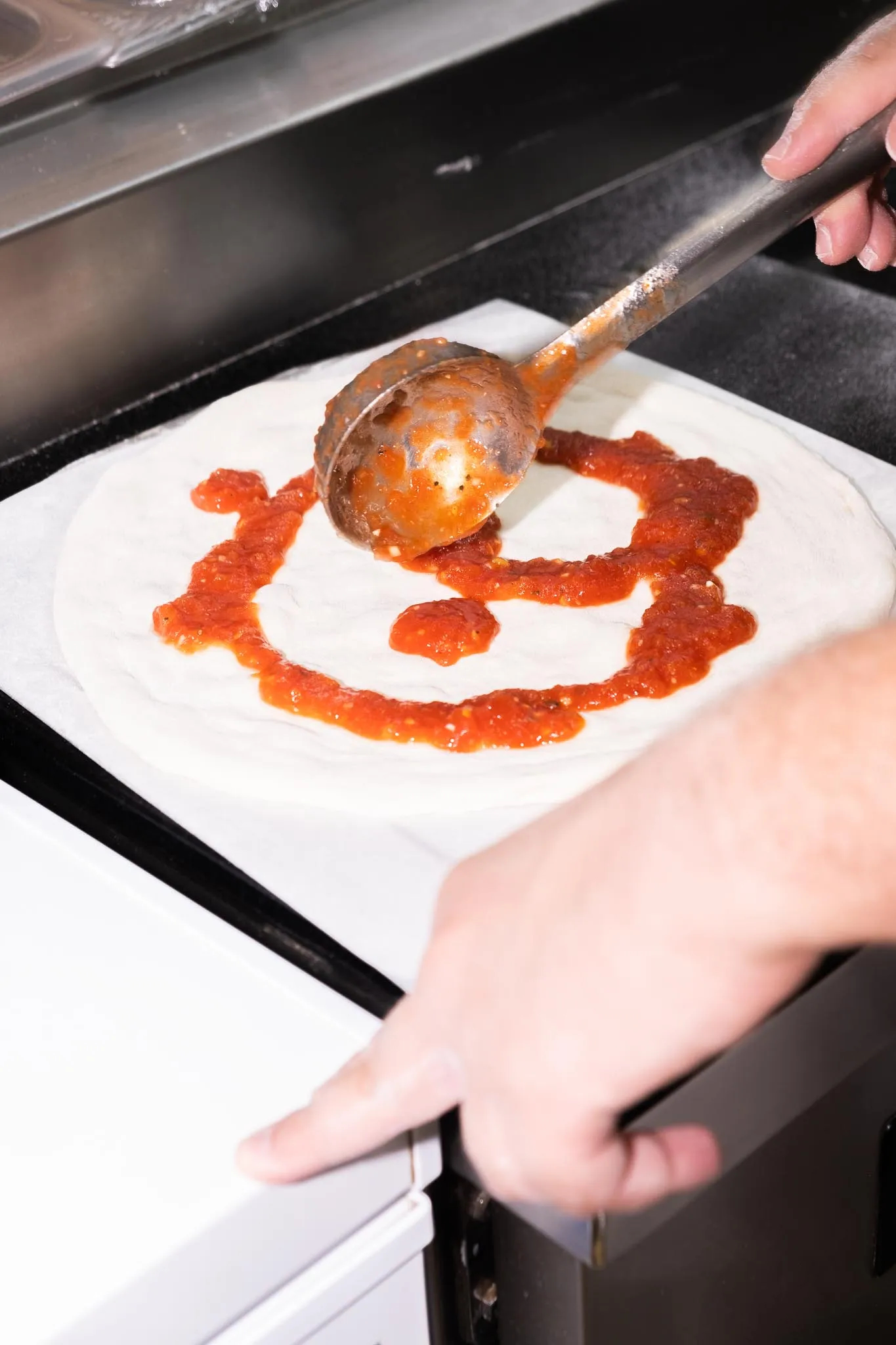
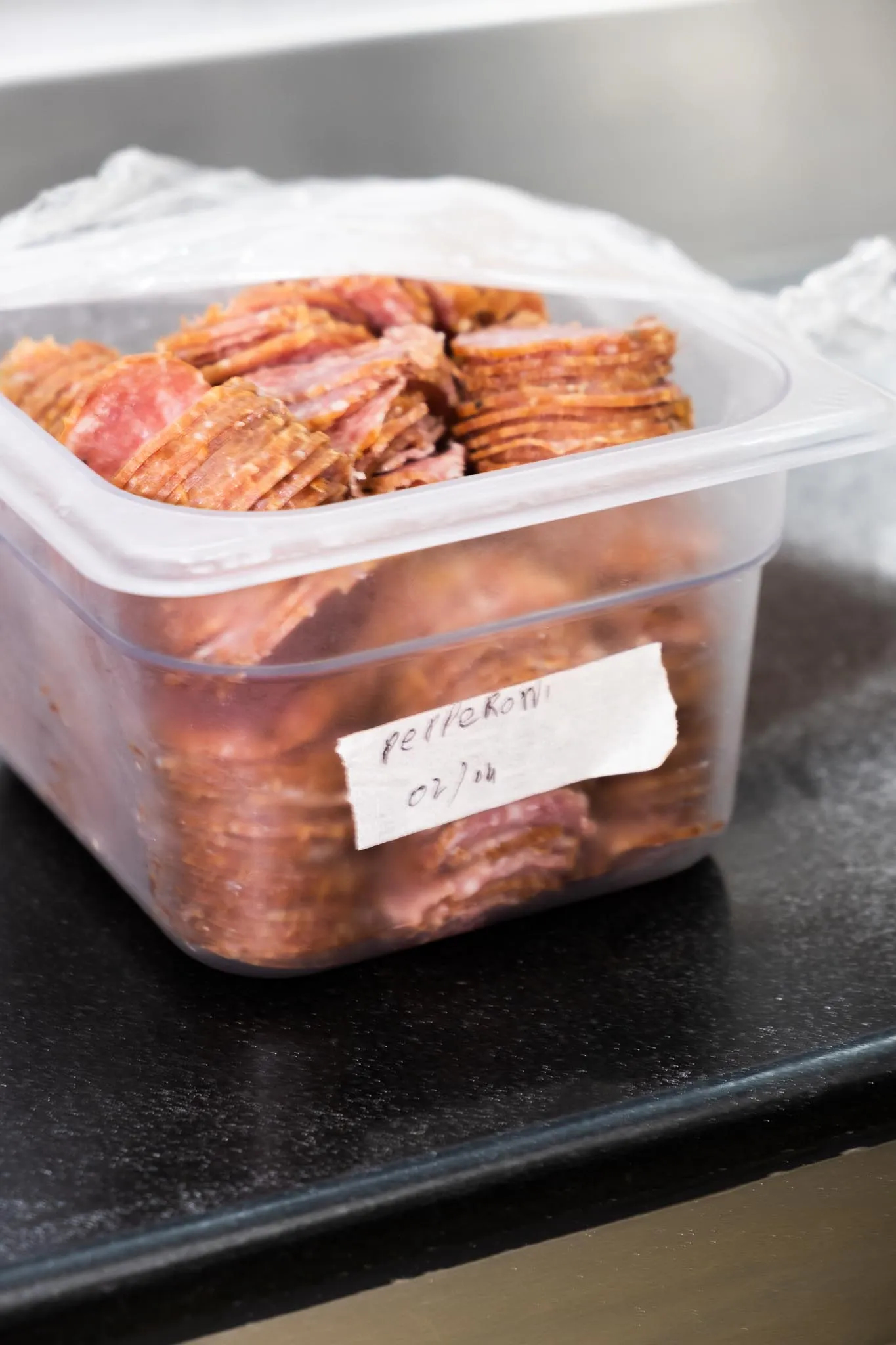
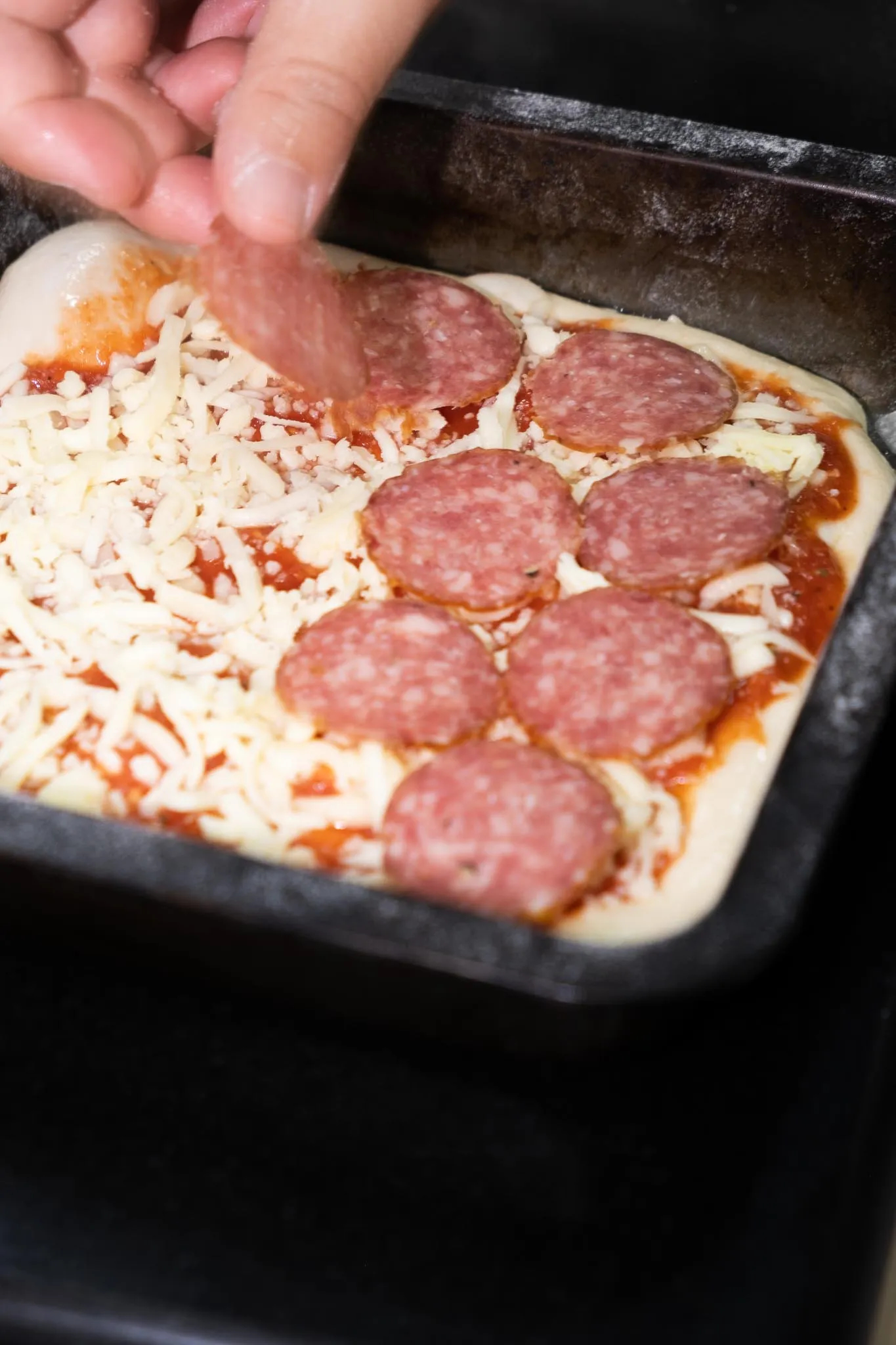
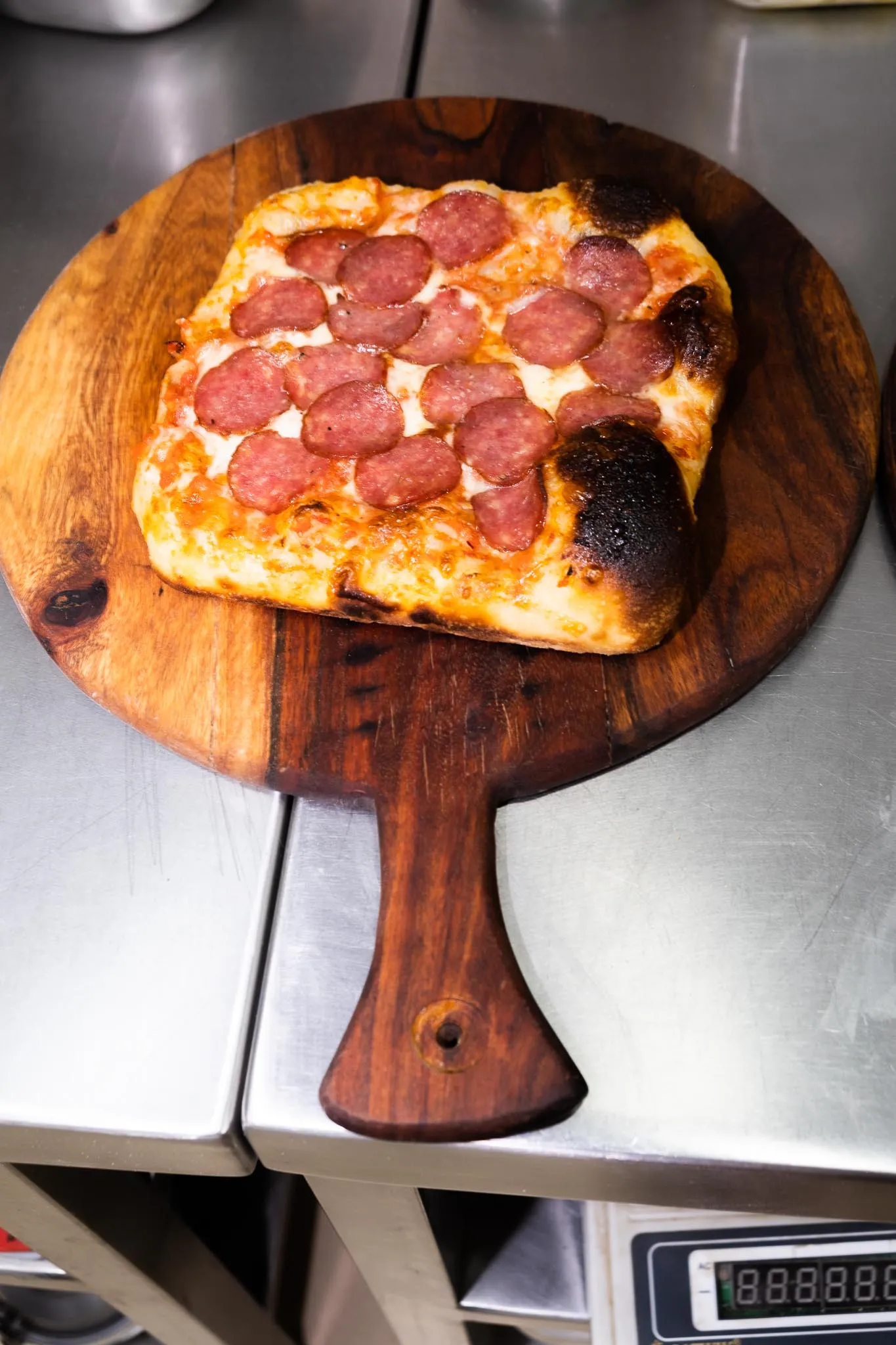
Who is your typical customer?
Unfortunately, most of our orders come from Swiggy and they don’t share customer data. It is safe to guess that most of the people ordering from us are kind of like pizza nerds, which seems to be every third person nowadays. Most of our food is New York-influenced. Those who’ve never had this kind of food are keen to try it. And those who have been to New York or Philadelphia and have had a cheesesteak sandwich, for example, will also want to relive that experience.
I have also intentionally not marketed East 7th Pizza & Deli a lot because I’m still tweaking things. I feel like it’s always a work in progress and I’m kind of a perfectionist; and I say that in the worst possible way. I’ll keep procrastinating with the marketing because I think maybe pizza dough trial 104 or 105 will be the perfect one and then we can really push our marketing. Currently, marketing has mainly been through word of mouth.
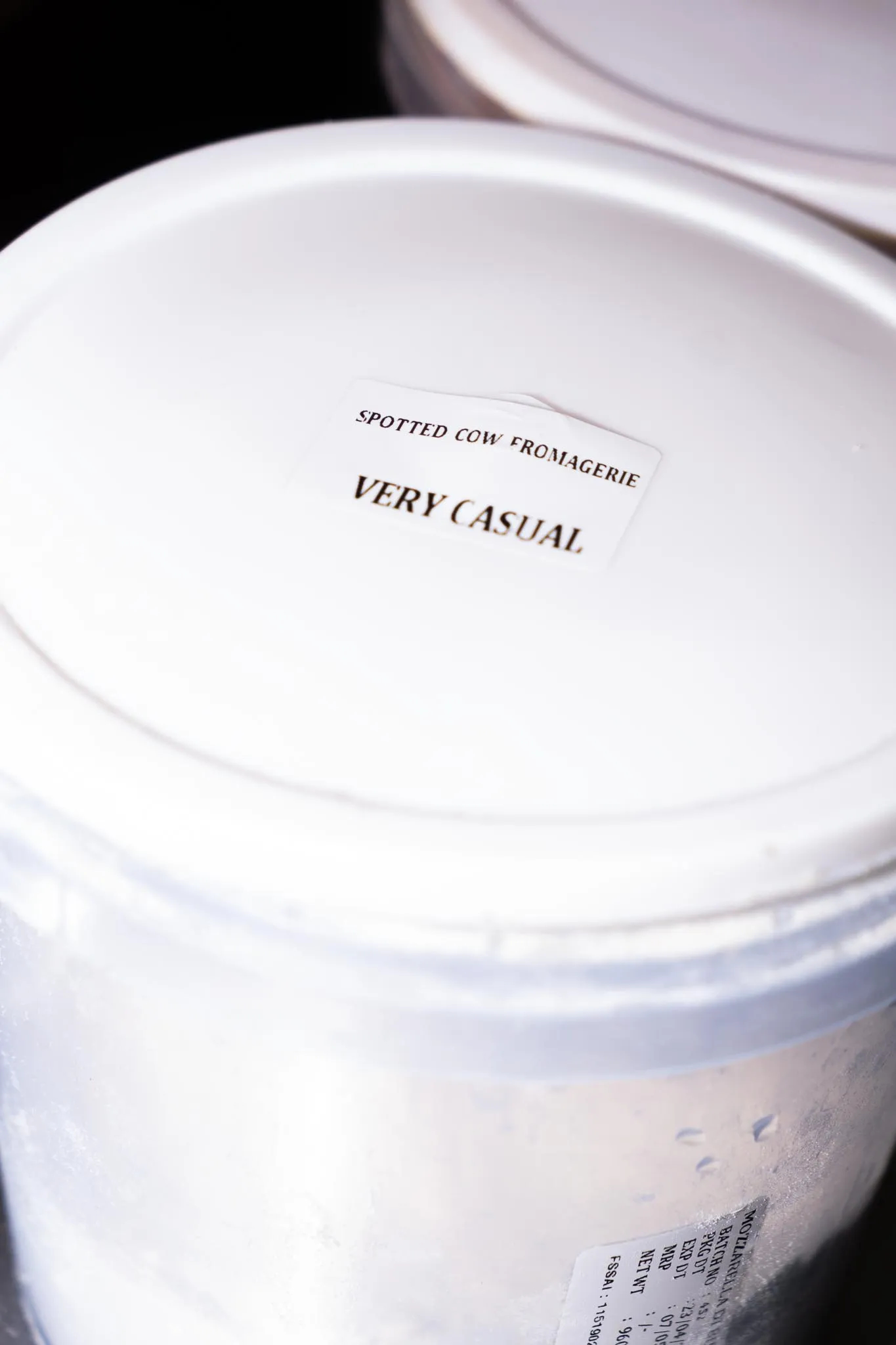
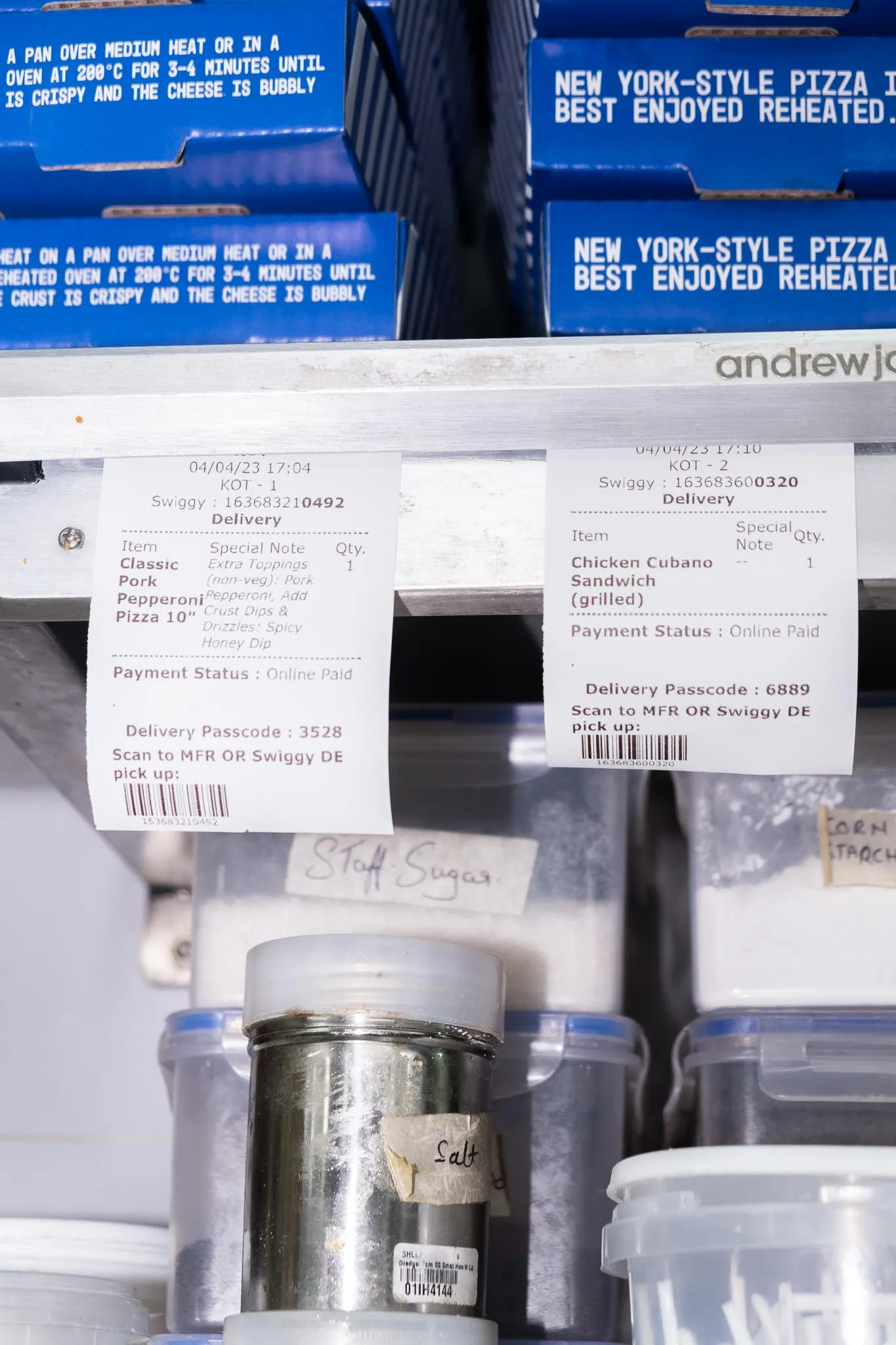
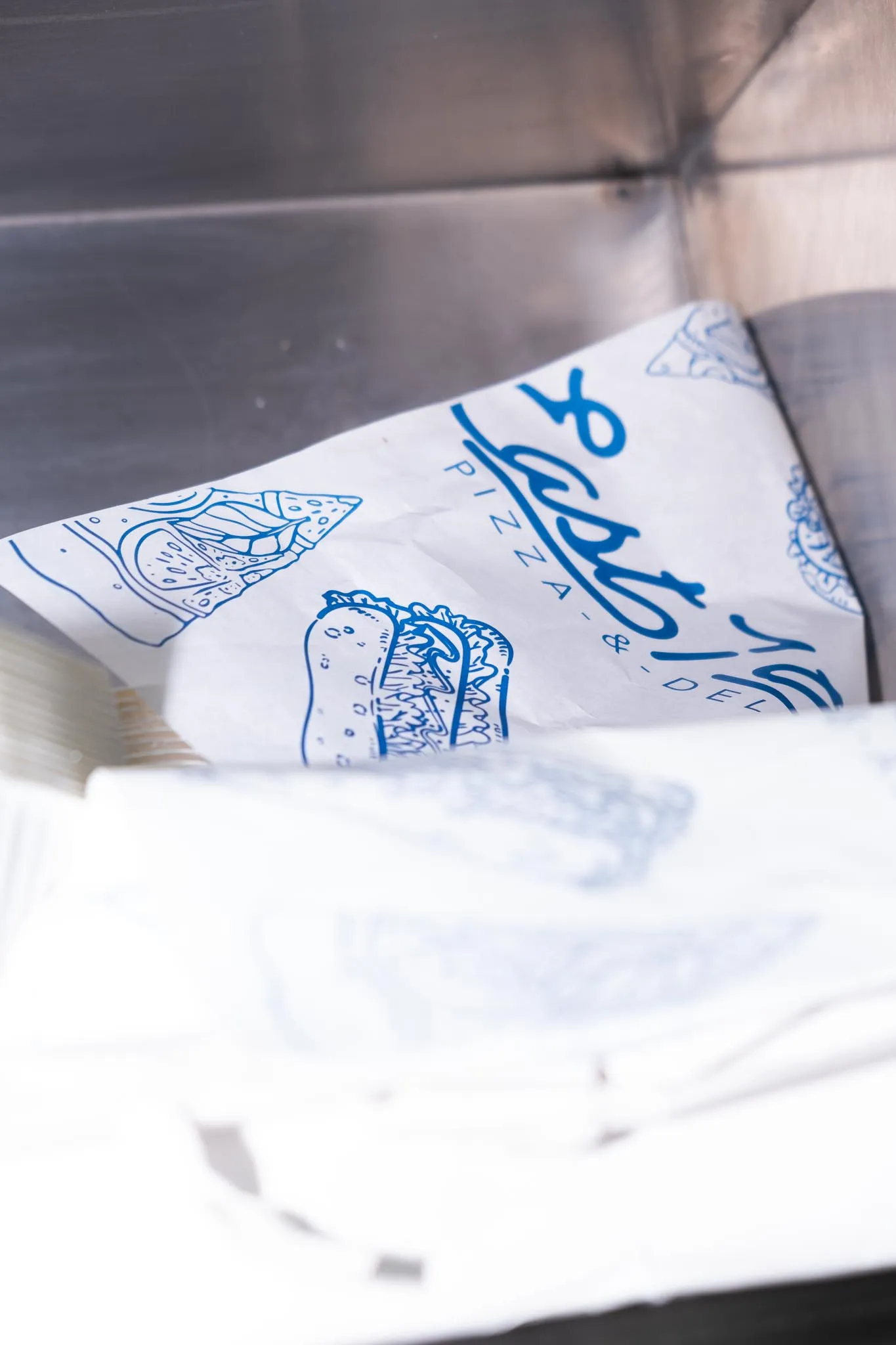
Is that also a result of the name East 7th Pizza & Deli? Your official company name is also interesting.
You could say that. Our official company name is Very Casual Foods. I came up with that name after leaving Masque because I was just so bored with fine dining. It is funny to say that now, since Masque is one of the best restaurants in India. I see myself sticking with fast casual or casual restaurants with thoughtfully executed and ingredient-driven food.
The name East 7th was inspired by the street I lived on in New York. While I was in cooking school, I lived on East 7th Street between 1st Avenue and Avenue A, which is in the East Village. And that one street had so much good food! You could walk down the street in 90 seconds but it had a lot of great tiny establishments. And each of them specialised in just one or two things. There was Luke’s Lobster, which made just seafood sandwiches. There was a Venezuelan arepas place. The building I lived in had an Italian sandwich shop called Porchetta, which just made a roast pork sandwich. Across the street was this soft-serve place called Big Gay Ice Cream, which sold really funky soft serve. And then there was a Chinese teahouse where I would sit and drink tea. That street really inspired me.
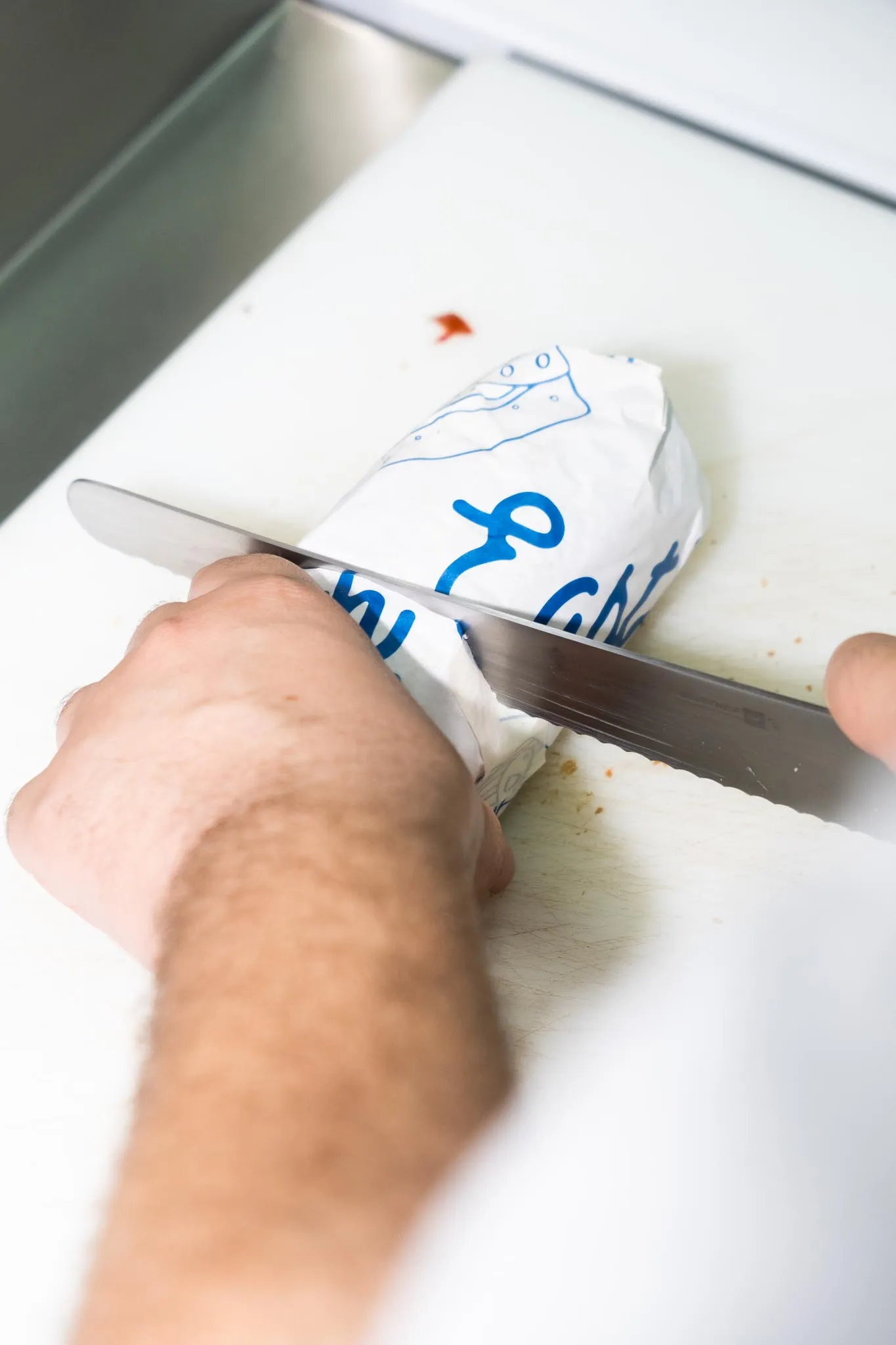
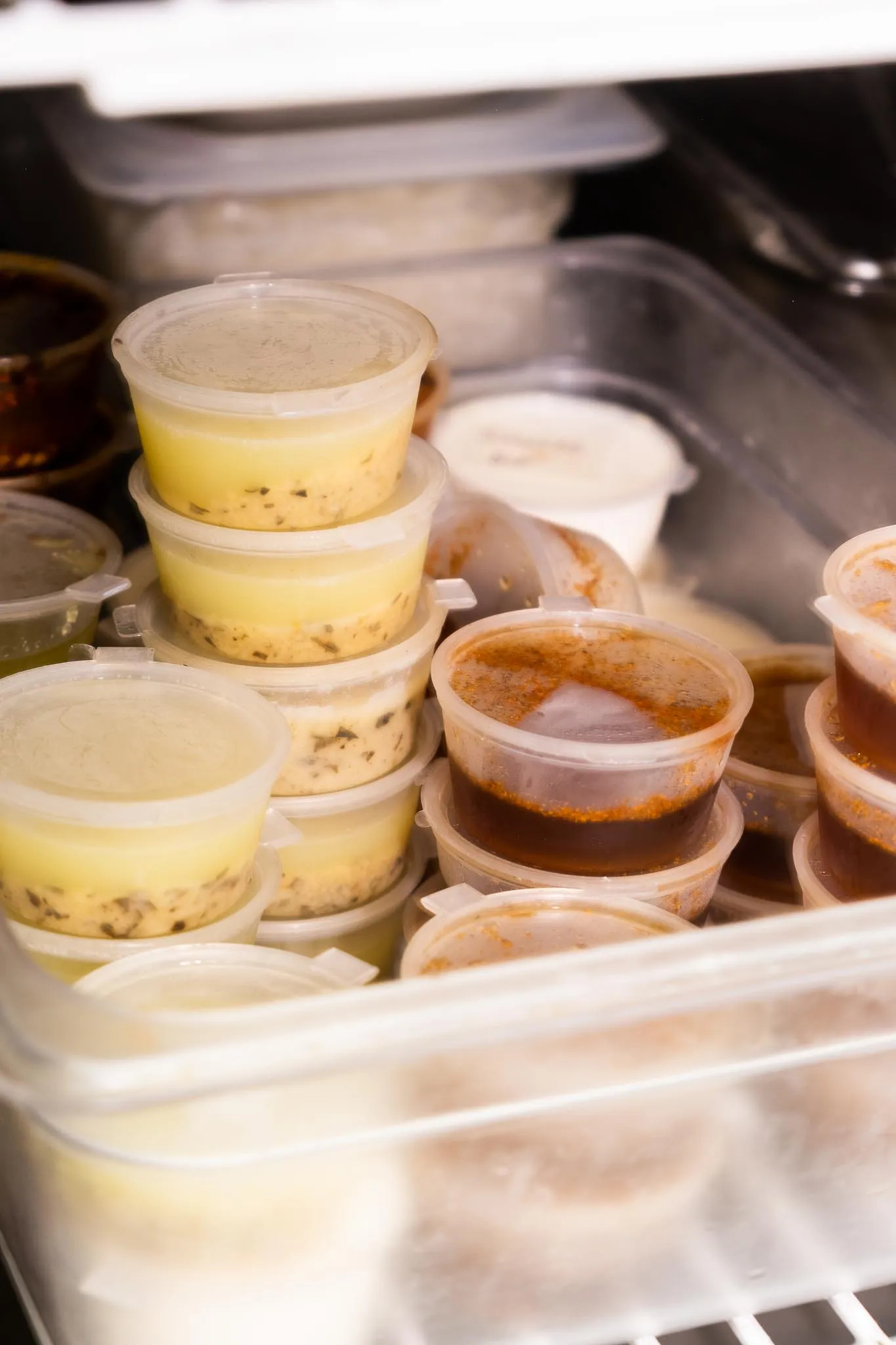
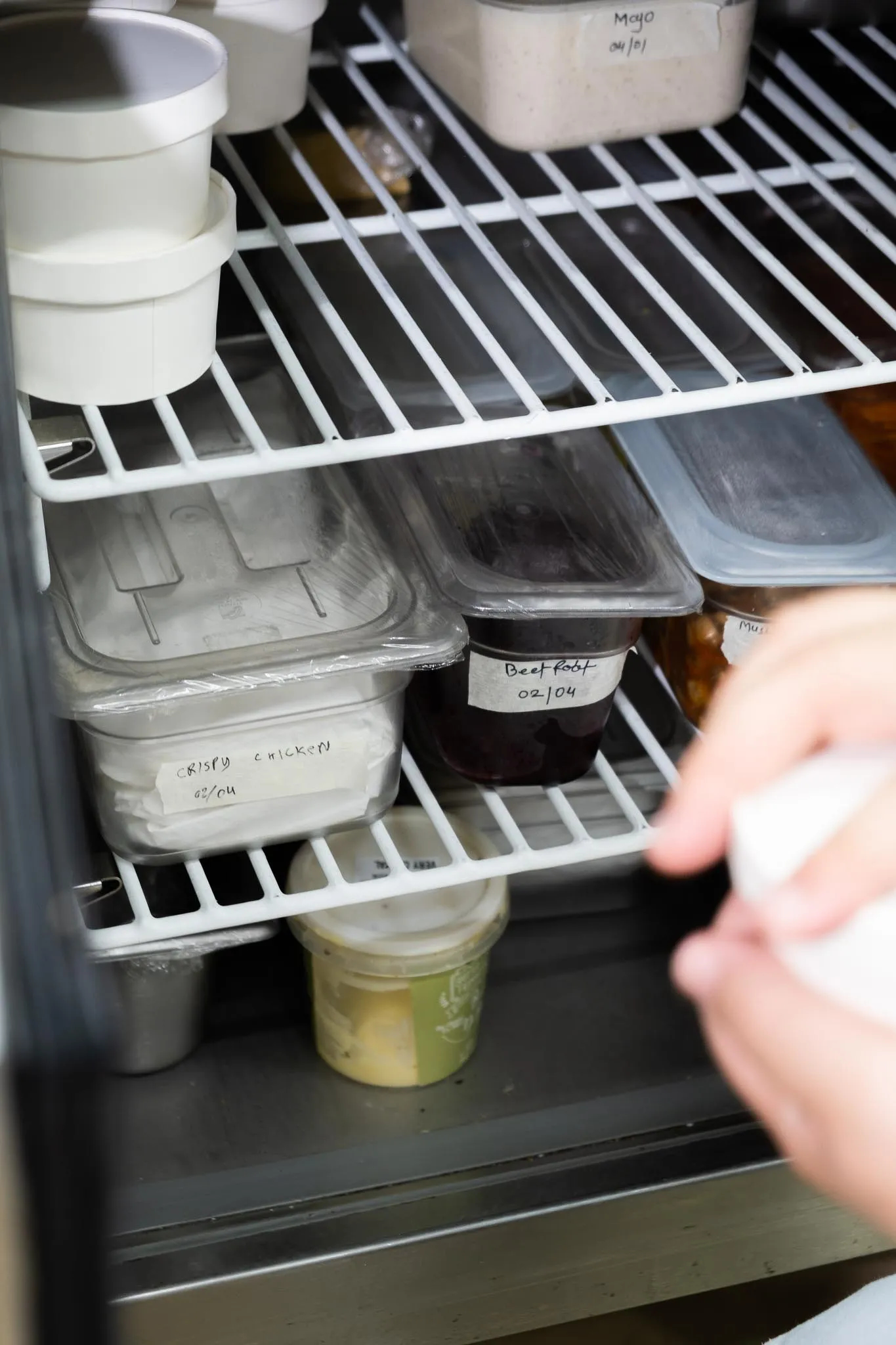
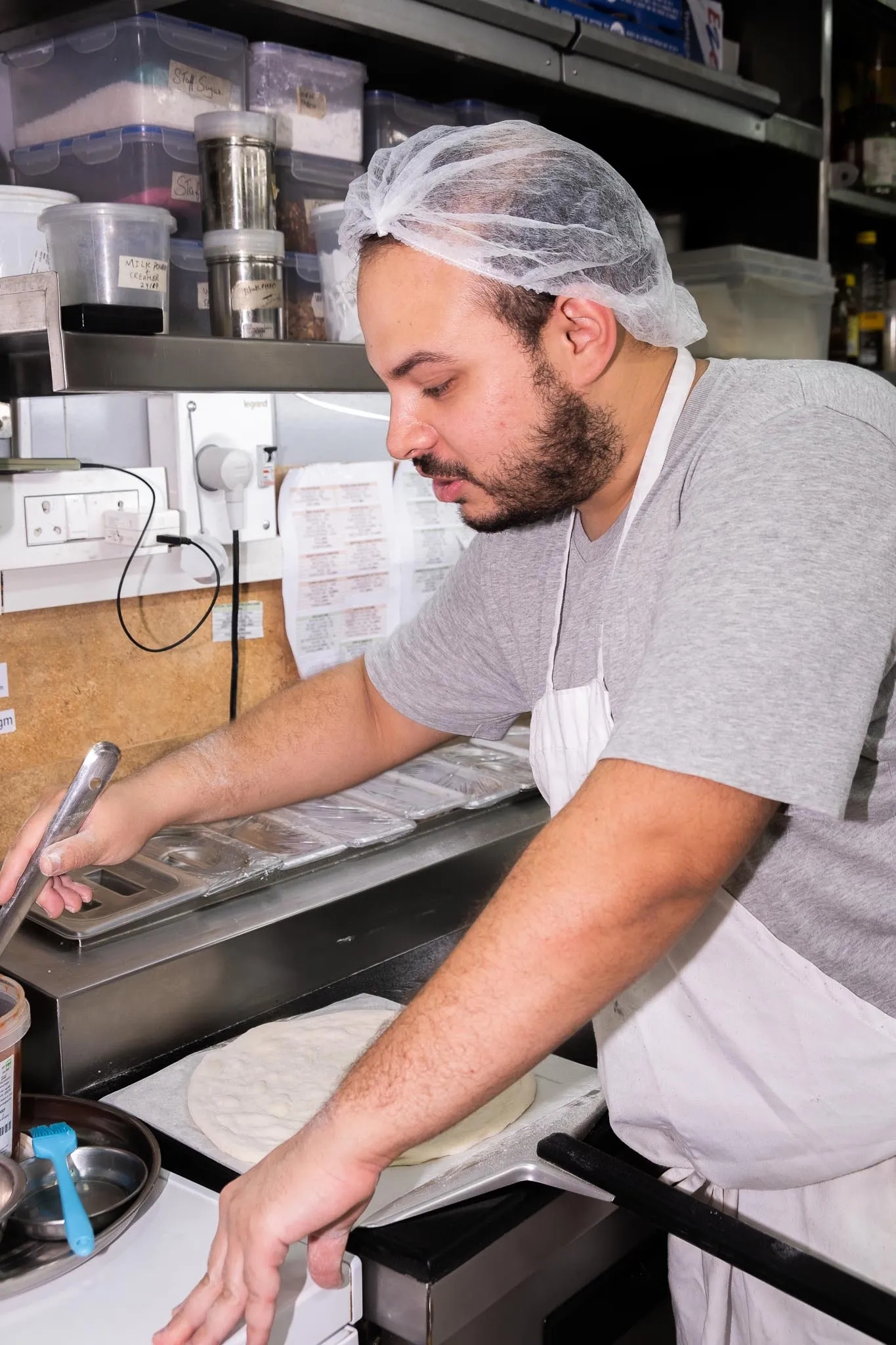
How would you describe what a deli is?
In the New York sense, it is your local sandwich place where you pick lunch up on a work day but it also could be where you go to get basic groceries, maybe even some baked goods, without having to make a trip to the supermarket. Within that, there are the bodega-style delis, where the sandwiches are made simply, using just packaged ingredients. Then there are the old-school delis, which make everything from scratch, like Katz’s Deli, which is famous for pastrami. Russ & Daughters is really well-known for their smoked fish. The deli culture came from the Jewish population of New York. But now it has become a trend that has spread across the world.
How do you build trust as a cloud kitchen?
I’m very particular about keeping the kitchen super clean, and also about making sure that ingredients are at their prime. That sense of hygiene was ingrained in me thanks to all my previous work places. Obviously, our food safety laws are not as strict or as strictly enforced over here in India, as compared to New York, but I enforce those same standards anyway.
In New York, if you have an amazing restaurant, even if it's a tiny one, the word is going to spread so fast that you'll have queues down the road. But over here, I don't think that's possible because we are offering a niche product. Flaying said that, I'm not necessarily trying to reach a wide audience. I'm just trying to find the right people who want something delicious that's made with care, attention and good ingredients?
How has juggling the roles of chef and business owner been for you?
I wish I could just cook and focus on the food because it would be so much easier. Half my time is spent managing people, even though I only have a team of nine. Just trying to keep them all on track and training them keeps me significantly occupied.
I’m terrible at marketing. So that’s another thing that I wish I would just not have to do. I keep hoping that if my food is good enough, I won’t have to do any marketing and people will just come anyway. And that’s obviously the dream. In New York, if you have an amazing restaurant, even if it’s a tiny one, the word is going to spread so fast that you’ll have queues down the road. But over here, I don’t think that’s possible because we are offering a niche product. Having said that, I’m not necessarily trying to reach a wide audience. I’m just trying to find the right people who want something delicious that’s made with care, attention and good ingredients.
What ended up being easier than you thought?
I don’t think anything has been easier than I thought. Most things have been harder than I thought. However, when someone tries your food, especially if it’s a stranger, and tells you that they loved it, you feel good and you feel like it’s all been worth it.
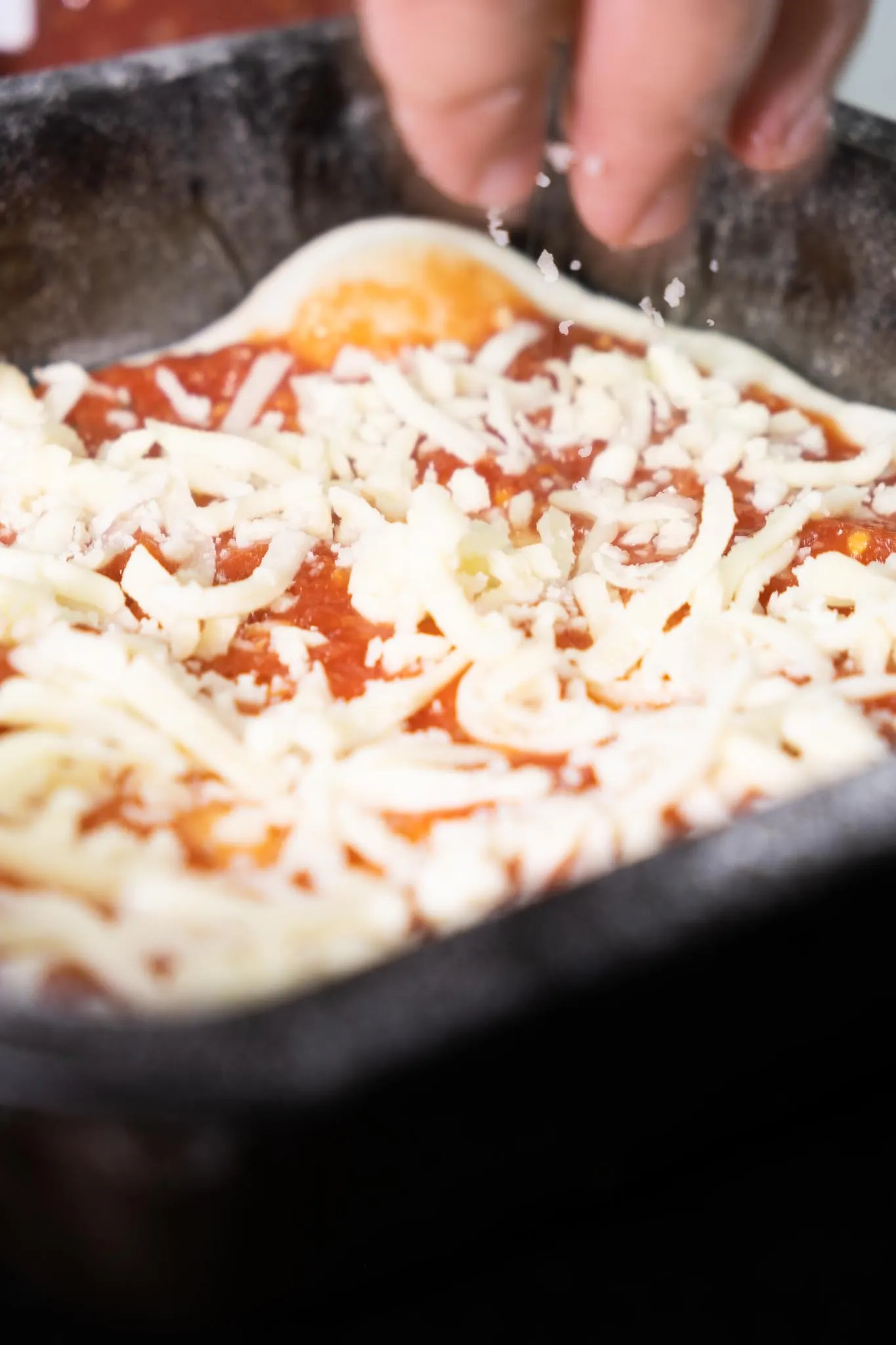
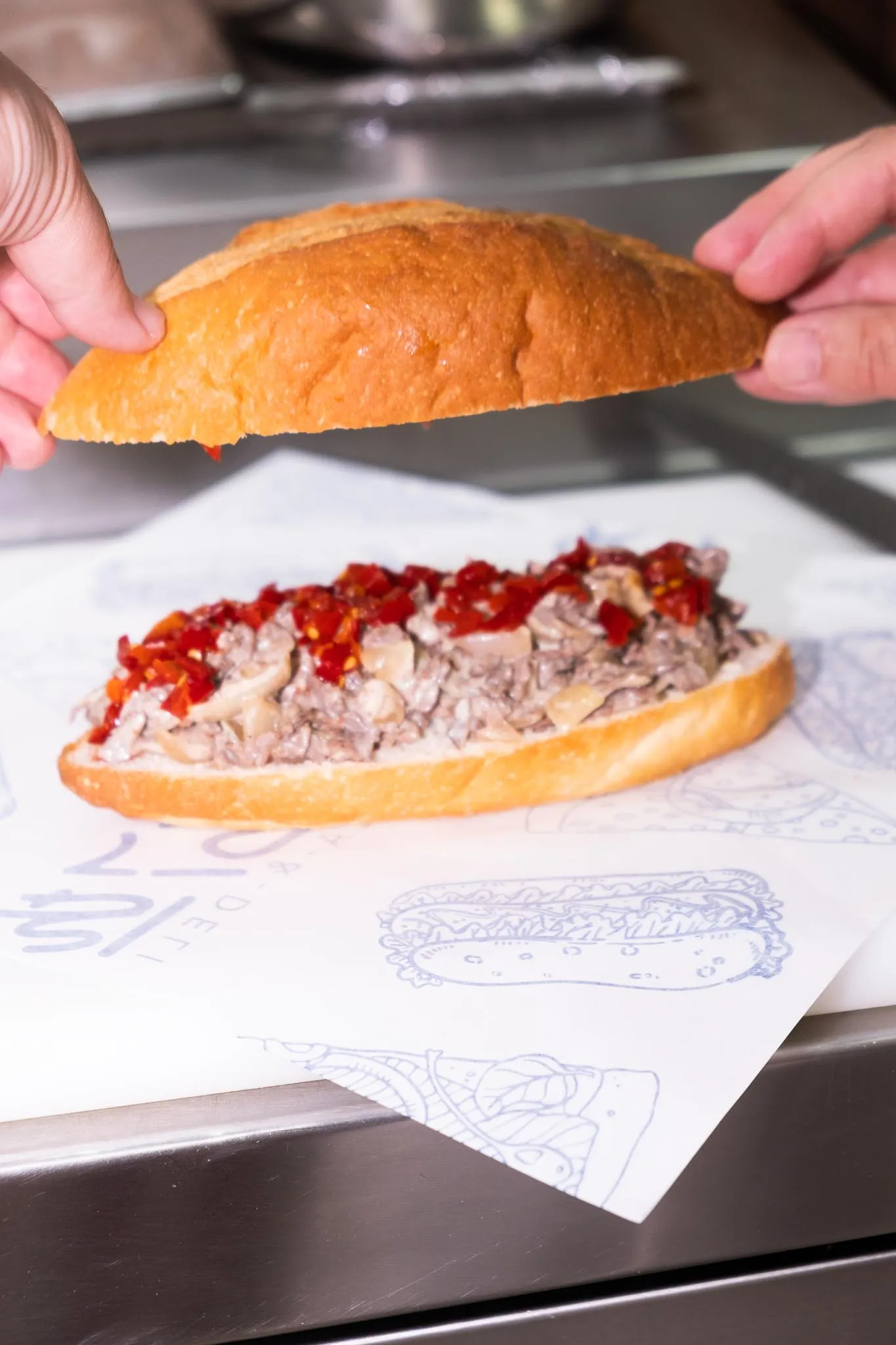
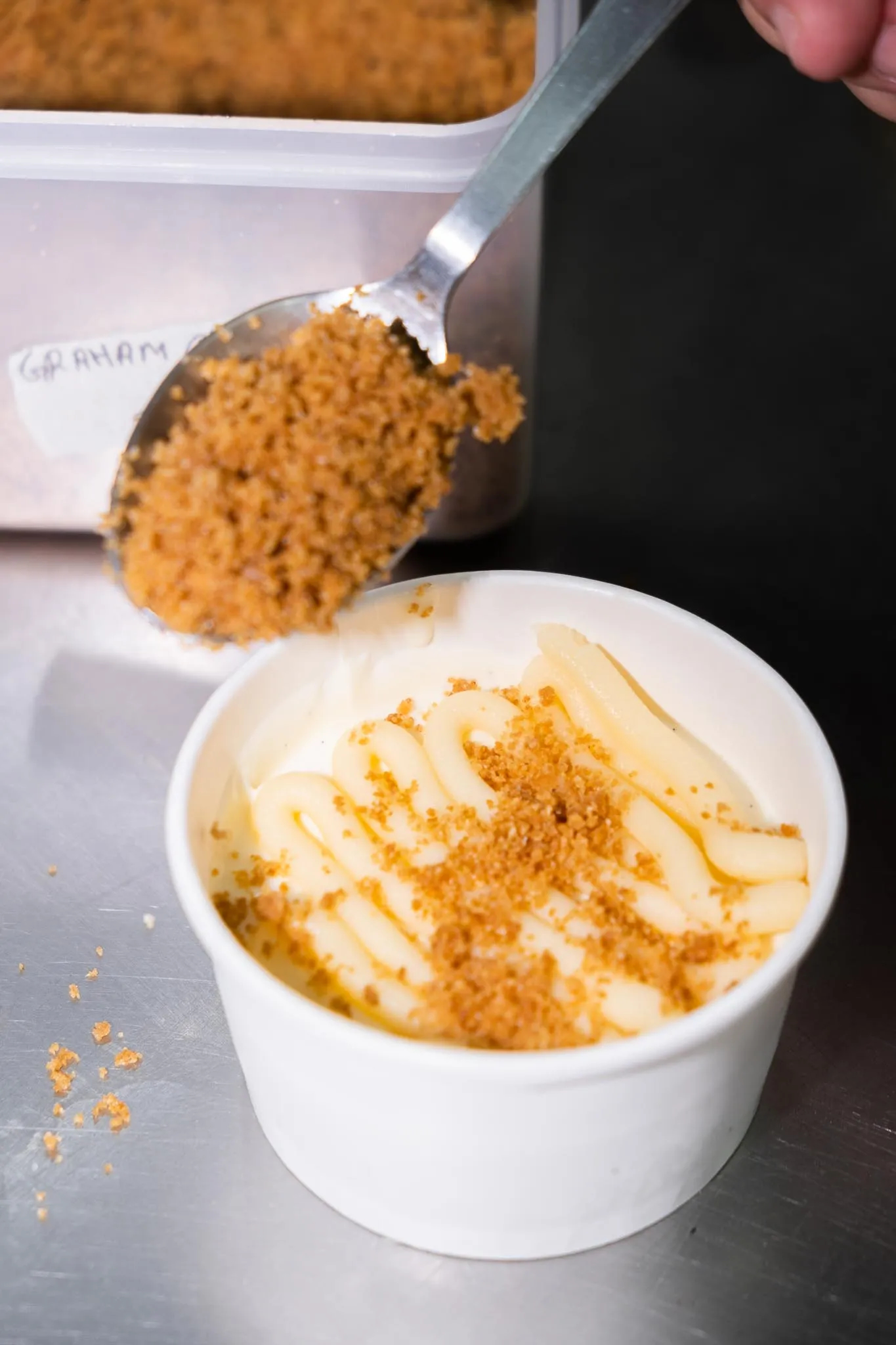
What is the perfect order from East 7th Pizza & Deli?
Our menu is not very long because I want every item to be super delicious. A Ray’s Cheese Pizza, our version of a margherita with extra buffalo mozzarella and parmesan cheese; a Pork Belly Bánh mì, which is meaty and spicy; and a lemon cheesecake pudding!
Previous: Kunal Makhija, Arabisque
Next: Kartikeya Ratan and Rishabh Doshi, Kiki & Pastor